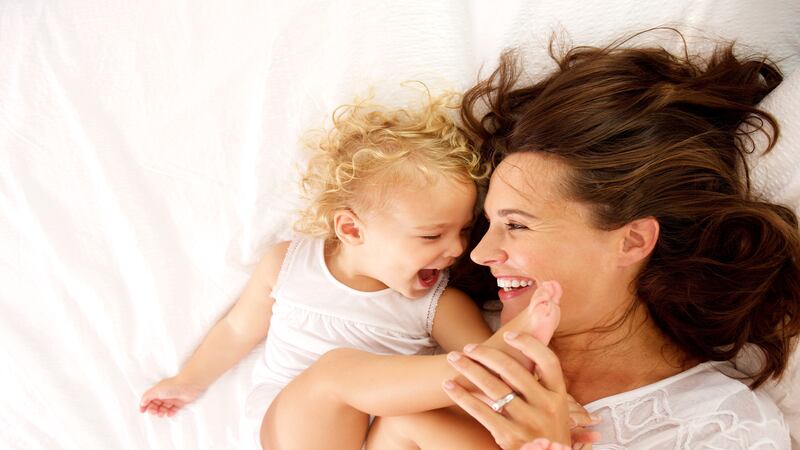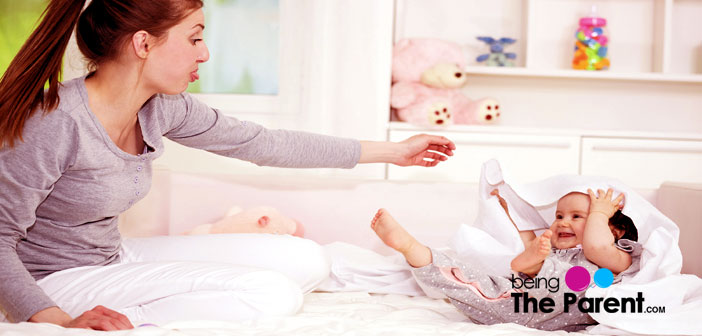
Babies as small as one year olds’ have a sense of humor. Yes, you heard it right! Who would have thought, right? But look closely, and you would know we are right. When we make funny faces at the child, when we make silly sounds or when we do absurd things with his toys, he chuckles, doesn’t he? Sometimes he would even laugh uncontrollably in response.
Now how does a baby that small comprehend what you are doing is silly or funny? That’s right – because he has already developed a sense of humor. He has been watching you and other people around from the time he turned six months and he has noticed how adults laugh when something absurd happens. He has, with observation, picked up the ’cause and effect’ scenario in ‘something silly will lead to laughter.’
So kids do have a natural tendency to humor. How to nurture this and ensure that it is something they carry for life is the real tricky part.
- Why Is It Important For Your Child To Have A Sense Of Humor?
- How Does The Sense Of Humor Develops Across Different Ages?
- 10 Tips To Develop A Sense Of Humor In Kids
Why Is It Important For Your Child To Have A Sense Of Humor?
We really should not be asking this question. Having a funny bone is something your child will be able to use it for life. A child who has a good sense of humor:
- Will be well-liked by his peers and will make friendships quicker
- As an adult, will be able to get along with people in general
- Will be less likely to be depressed when he grows up
- Will be able to face and solve conflicts and problems later in life
- Will be better at ‘out of the box’ thinking and creativity
- Enjoy life to the fullest and remain positive most times
These are all pretty obvious things. But what is lesser known is that a child with a sense of humor have higher self-esteem and is relatively more optimistic. And what is more “laughter is the best medicine” is not a saying without any merit. Research has linked sense of humor to lower heart rates, lower stress, better digestion and lower BP.
How Does The Sense Of Humor Develop Across Different Ages?
Children at different ages sees humor in different light. Here is a quick summary:
- Babies: As we said earlier, babies start reacting to humor early. Physical play is what makes your child laugh first – especially tickling. Soon they will start responding to silly and absurd things you do, for example if you put a toy on your head and make faces
- Toddlers: They still love physical stimuli like tickling and a game of peek-a-boo. But now that they can understand language, they can crack up at the sound of silly rhymes and words. They might even try to make you laugh with these seemingly non-sensical word plays
- Preschoolers: Inappropriateness is what makes them laugh at this age. Anything whacky – like a dog which has duck feet, or a duck that has a tail like lion. This when most kids start watching cartoons, which are a storehouse of stuff that is absurd
- School age kids: Older kids treat humor the same way we do. They love puns, riddles, word plays, slapstick comedy. They would love to be the one who cracks a joke. But unlike us, they might repeat the same joke many times and expect the same reaction as the first time

10 Tips To Develop A Sense Of Humor In Kids
- Walk the talk: Be humorous. If you have a sense of humor, if you crack jokes easily, if you laugh at the silliness around you readily, then you become your child’s humor role model. And that is the best way to develop humor in your child
- Encourage your child’s humor: Never be too busy to laugh at your child’s attempt to humor. Even if he is repeating same thing again and again, even if you do not find it too funny, even then laugh
- Work with your child: Sit with your child and draw something funny. For example, draw the child’s dad and give him BIG elephant ears. Or read a funny story together. Or just make some silly and funny stuff up. The idea is to engage you and your child in something funny
- Sing – in an animated way: Make exaggerated actions for the usual rhymes. The “moo moo moo” in Old McDonald rhyme would look funnier if you spontaneously go on all fours on the ground when you say Moo
- Plan some funny family traditions: It could be anything. Every holiday (Christmas, Diwali, or any regional holiday of your choice), cover every food item with chocolate! Or gift each other silly stuff and debate which gift is the most silliest. Or have a day when everyone have to walk backwards inside the house
- Watch funny movies: There are hosts of great child-appropriate movies like the Ice Age series, Madagascar and so on. Sometimes the child might not get all the humor. This is a wonderful chance for you to explain word plays and sarcastic humor to your child
- Tell a funny story about yourself: Funny stories are more fun when one of the character in the story is a parent. And especially more funny if the story is from the parent’s childhood
- Read funny books: Read funny books (Dr Seuss has many). And laugh loudly when you read something funny. This will not only help your child to identify humor, but also encourage him to laugh as well
- Praise them: They made a smart word play, or changed a rhyme to make it sound funny? Praise them for it!
- Make the house funny: There should be humor all around. Then your child will not miss it. Make your house a funny environment by having funny posters, jokes, books all around the house. Most importantly, fill your house with humor-rich people – meaning all the adults in the house need to be humorous too
So get ready to have those funny bones tickled!
You know what they say about the family that laughs together? It stay together.
